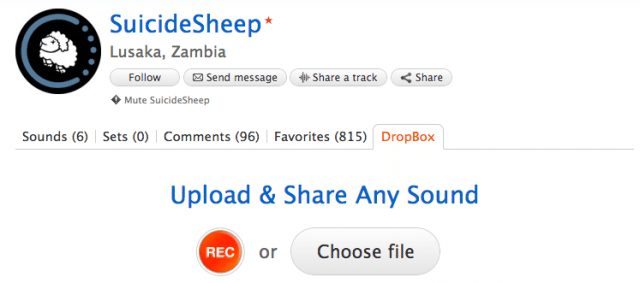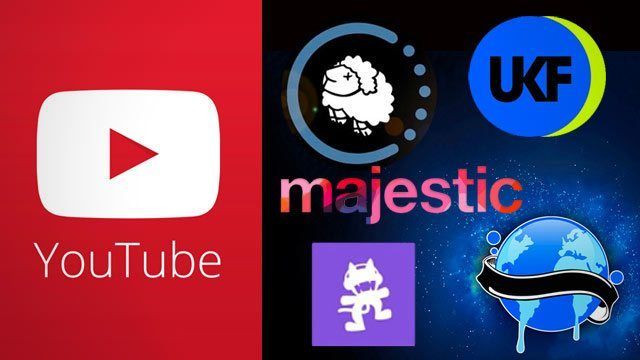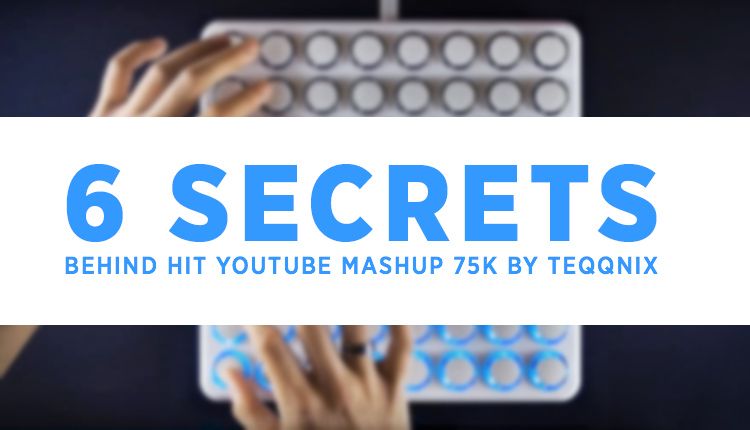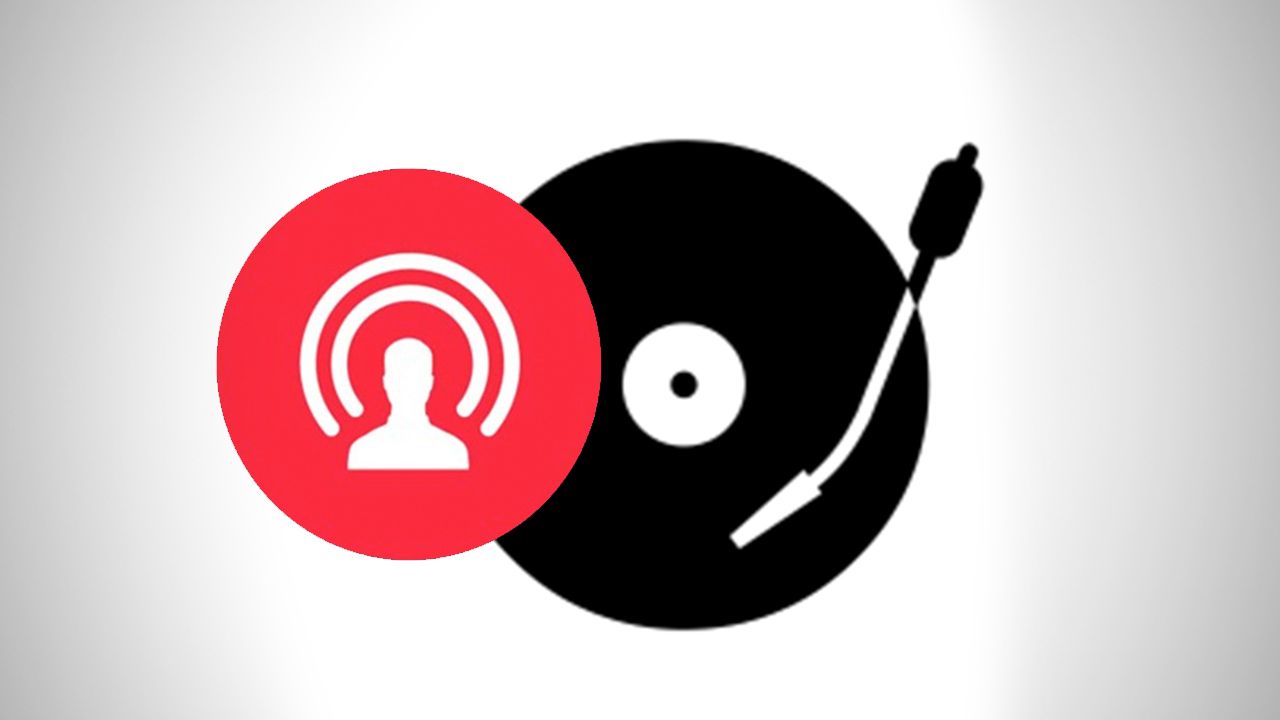You’ve seen them on YouTube – music channels that feature new tracks, often with a signature visual style. More of these channels launch every day, with a wide variety of different genres and styles covered. For DJs, these are treasure troves of new music to discover. As a producer, remixer, or label, they represent a powerful opportunites for your music to reach hundreds of thousands of subscribed listeners – so today guest author Budi Voogt has put together a guide for submitting music and winning at YouTube.
THE RISING TREND OF CHANNELS
Between 2008 and 2012, YouTube and later platforms like Soundcloud saw an enormous rise in popularity. This coincided with electronic music genres like electro house and dubstep rising to mainstream awareness. Even as the amount of people using YouTube as their preferred method for listening to music increased, only a limited amount of music was available. The commercial music became available first, uploaded by listeners or rights holders (labels, artists, publishers), but this left a huge amount of music, specifically more underground and niche genres, unrepresented.
Many of the major music promo channels on YouTube initially started uploading music because there was simply no one that had done so for the type of music that they loved. Some focus on specific musical genres, be it dubstep, future bass, or chill-out, while others offer all styles of tracks. These channels flourish because they offer people an easy place to get a curated selection of music.
Today, there’s an army of huge channels out there such as UKF, Mr. Suicide Sheep, Majestic Casual (the above video is theirs), SubSoul, Proximity and many more. All of these individually have over 100,000 subscribers. With those numbers comes the power to gather 50,000+ plays on a track within days. They can make or break artists, and their influence spans over the entire internet-using world.
Because of their newness, lots of artists overlook these channels – but they have serious influence. For anyone who is releasing music, it’s foolish to not try to collaborate with them.
TRACKING DOWN THE MUSIC PROMOTERS

In order to submit music to these channels and the promoters behind them, you first have to locate them and gather their contact information. Almost every promoter will accept music submissions through email, a Soundcloud dropbox, or a custom submission form.
Start a list in which you collect their information – look for email addresses, their (real) names, and social media links. To keep track of things, use a spreadsheet program like Excel. To start building your list, check out the following places:
- YouTube: The logical first place to start looking. Often you will find trending videos under the ‘Music’ category, of which a lot are uploaded by music promoters. See a list of top trending music channels on YouTube here.

- edmDistrict is a YouTube network that aggregates many of the EDM-focused promo channels. In this scene, the majority of promoters know one another. edmDistrict is quickly expanding and the most influential EDM promoters are jumping on board – check out this a poster with all the channels that have signed up with them.
- Forums: The edmDistrict network has been the first to capitalize their community’s close-knit promoters by creating a forum, now one of the few notable go-to places for promoters (and producers) to interact. The community talks about the industry, shares knowledge and tips, and serves as a platform where individual channels and music can be showcased. They also maintain and update posts containing listings of all reputable channels: check out the most comprehensive one here or the resulting Google Docs spreadsheet (please use respectfully).
- Reddit: There are a couple of great threads on reddit on exactly this topic – check out the most current and complete one here.
THE MINDSET OF A MUSIC CHANNEL PROMOTER

You’ve got an idea of who you’re going to approach and where to find them, so before you reach out, it’s important that you take a moment to look at things from their perspective. How can you offer them what they want, if you don’t know what that is? Here’s a list of things that you should consider:
- Promoters are often young: Many are young men, often between 15-25 years old. The promotion channel trend really started with the EDM scene and thus attracts a young and internet-centric crowd. They’re very communicative and interlinked, and many will prefer interacting with both their colleagues and aspiring artists over social networks.
- It’s all about the audience: The primary goal of a promoter is to develop an audience. By increasing their number of subscribers, they increase their income through monetization, but also gain more influence in the scene. In turn, this leads to a bigger influx of demos and opens doors to collaborate with bigger labels and artists for more exclusive content.
- They need to stand out: With the huge increase of the number of channels, it’s very important for them to stand out. They can do this through musical selection, visual presentation, and communication with their fans. Many of the channels focus on promoting specific genres of music, which gives them a clear identity, but also limits their options of what music they can support.
- Fans love added value: To successfully build their fan base and establish a reputation, the promoters need to provide value to their audience. Most crucially, all promoters want to be the first to discover something great. To upload a track from an artist of which no one has heard before, and then have it go viral, can provide both the promoter and artist with a surge in popularity. Fans and promoters also love freely downloadable tracks, and having this can seriously improve an artist’s chance of getting uploaded.
- The better they get, the busier they are: The bigger these channels are, the more music they receive – often well over 25 submissions a day for any channel with 25,000+ subscribers. The big shots like Mr. Suicide Sheep get so much music that it’s almost impossible for them to keep up with music submissions. Standing out is essential if you want to get covered by these big guys.
LAYING THE FOUNDATION

Before we proceed to actually submitting music, there’s a number of things that you should have in order before you even consider sending something out. Get these things right to greatly improve your odds of getting supported.
These things boil down to a number of essentials that all good artists should have, and then there’s the important aspect of developing a relationship with the promoters. Here’s your checklist – and how to tackle each item:
- Good Music: Surprise! This is the most important thing you need to have. Don’t bother sending out stuff if it’s not, as your time will then be better spent improving in the studio. Ask yourself: is your music getting traction from people other than friends and family? What do fellow musicians think of it? How does it technically compare to the music that the promoters you want to target upload?
- Solid Mix & Master: Music promoters aren’t record labels – the tracks that they upload are the files that are delivered by the artist, so it’s essential that you deliver a track that is mixed and mastered decently. It can make the difference between your track sounding ok or amazing! This is an article all in itself – but it pays off to do your research here.
- Online Presence: The minimum is a YouTube channel, Facebook Page, Twitter and Soundcloud account. Make sure that all of these channels interlink, provide a contact email address, and a short bio. For music promoters this is important because they expect you to re-post and share their uploads on your own networks.
- Visuals: Make sure you’re looking mighty fine – have a logo that sticks and radiates professionalism. Get it up on all your social media pages and become instantly recognizable. This isn’t as important for a music promoter as it is for a record label, but it’ll help give them a feeling of confidence in you (and what you’re doing) if your presentation looks sleek.
- Own All Copyright: In order to be able to monetize content and upload tracks without receiving copyright claims on YouTube, the promotion channels need to have permission to upload the tracks from the original rights holders. These are often the artist, record label and/or publisher. Back in the day it wasn’t uncommon for a promoter to upload music illegally, but this is quickly becoming a rarity. If you’re going to submit music to these channels, make sure that you possess all the copyright on your tracks and that you did not use any copyrighted content without permission.
- Build Relationships: Developing a relationship with the promoter is probably the most crucial thing you can do to improve your odds of getting supported by them. The best approach to doing this is by adding value. Locate them on social media, and start a conversation however possible – point out something of value to them, show your support, and help them out. Try to avoid asking for anything or to mention that you want their support. Be kind, and build that relationship, you’ll see its effects once you submit your music to them.
Take note that building new relationships can take some time. Start networking and getting familiar with the people in this scene long before you actually start submitting music to them. At least two weeks leeway is generally a good idea.
THE ACTUAL SUBMISSION

Here we are, finally – it’s time to run through how to best submit your music to the channel promoters. Attention to the detail is key as these are going to set you apart from the hundreds (or even thousands) of people sending stuff to their mailboxes.
The rules of the game:
- Only finished works: Promoters have no use for tracks that are works in progress. Only send them tracks which are totally finished.
- Just originals + official remixes: As explained earlier, promoters can only legally upload tracks of which they have received permission to do so from the rights holders. You shouldn’t bother sending out mash-ups, unofficial remixes, edits, etc – promoters are busy enough as it is.
- One release at the time: Only send one release to a promoter per submission – one single, EP, or album – so the promoter has a clear idea of what ‘product’ he is pushing. Also, you want to avoid them to have to listen to a lot of music before finding the quality. If your release has one or two huge tracks, then you’re better off sending those instead of the total package. Once you’ve sparked their interest, send more later. Whatever you do, avoid sending over multiple unrelated tracks. It’ll decrease your odds of getting supported because it takes more time to listen to and leaves an unorganized impression.
- Sooner the better: Promoters take pride in being the first to discover something that’s new. If you want to improve your odds of getting covered, consider sending out releases a short while before they come out. To prevent leaks, make sure to place an embargo date of approved release in your submission. The downside to this is, at the time of submission, you won’t be able to link to online music stores yet – you can always send those later.

Preparation:
- Export the right quality: Make sure to send music out in the right format. Some promoters prefer lossless files for in their videos, whilst others prefer MP3s. Bounce both 320kbps MP3s and 16+ Bit 44.1hz .WAVs of your masters, zip them up into two packages, and upload them to a trusted file-sharing platform like Dropbox.
- Use correct file names and ID3 tags: Tracks and emails tend to get lost, so use clear and easy-to-comprehend file names and ID3 tags. For both, use a format like: “Artistname – Track Title (Mix Type) (email address)” . The promoter needs to be able to figure out who you are, what track it is, and how to reach you if they were to just find the audio file on their desktop.
- Upload a streaming version: Most promoters don’t like getting tracks attached to emails and might even be filtering them out – so offer them a streaming option, like Soundcloud. In the case of a submission pre-release, set your upload to ‘private’.
- Grab the download and buy links: If your tunes get uploaded, you’ll want the promoter to include links to the places where fans can download or buy it. Locate these and use a link shortener like Bit.ly to make them look clean.

The actual send-out:
- Determine who you are addressing: You’ve done your research – with a little luck you’ve found out his/her actual first name. Use it when addressing a mail to them, as it’ll show that you’ve done your homework.
- Writing the email: Focus on keeping it personal, yet short and efficient. Include the downloadable package links, the buy/download links and a note of permission to upload and monetize the tracks. The email subject line is very important too – stick to this formula: “[Genre] Artist name – Track Name (Free Download / Record Label)”. This makes it very easy for the promoter to filter out the style they’re looking for and gives a much more professional vibe than saying “Hey listen to my track”. Here’s an example template:
To: Peter@electrohousepromotions.com
Subject: [Electro House] TheBestBandEver – Feel The Beat (Free Download – Spinning Records)“Hey Peter,
Hope you’re doing well.
Here’s my new track ‘Feel The Beat’. It’s coming out on Spinning Records on October 1st as a free download.
Release description + Artwork included in the packs.
Stream: http://www.sc.com/h3439423n
Private MP3 Pack: http://www.dropbox.com/juh349h
Private WAV Pack: http://www.dropbox.com/j39jire9hPublic Download Link: http://bit.ly/i4gh2123d
Beatport: http://bit.ly/i89useYou have full permission to upload and monetize these tracks, as long as you include my social media links and the download and buy links. It’s under upload embargo until October 1st. Please feel free to upload it then.
Hope you like the tunes. Would mean a lot if you support them! Thanks,
TheBestBandEver”
- Send this out to your list: Now that you have your template email, send it out to all the contacts on the list that you’ve built. Make sure to customize their first names. If you don’t have the first names, use the name of the promotion channel or organization.
- Wait – then send reminders: Most respectable promoters receive so much music that it can take them up to a month to go through all submissions. I suggest waiting a week for a response and then sending a brief reminder by replying to the initial email. The reminder could look like this:
Hey Peter,
Did you get a chance to look at the tracks I sent you?
Very curious to hear your opinion.Thanks,
BestBandEver
I recommend only following up once. Often the promoter just won’t dig the release or not reply to your mail. You’re better off trying your luck again with the next release than you are bombing them with more emails.
- I got supported! Now what? Assuming you built a list of 100+ promoters, checked all the prerequisites, and sent out a bunch of great emails, you’ll hopefully get some attention! When you do, ask the promoter for their link, support it by reposting it on your social media, commenting on their video, and reacting to their own social media posts. This will strengthen your relationship and make it more likely to happen again in the future.
- Can I do this more efficiently? Submitting music to 200+ promoters with single-handedly written emails becomes a very time-consuming task. I recommend that transitioning to a mailing list service like Mailchimp, YMLP, or Aweber. These services make creating great-looking emails simple, and means you can rapidly craft campaigns to send to your full list of promoters concurrently.
GO FORTH AND SUBMIT!
And that’s it – quite simple actually, isn’t it? Hopefully you’ll now have a good grasp of how online music promotion channels work and how to use them your benefit.
If you’re getting little response or when this whole procedure seems difficult to you, take a moment to think about this: the bigger channels out there such as Majestic Casual and Mr. Suicide Sheep have the power to single-handedly get a track 100,000+ plays. Maybe things won’t work out immediately – but when they do, it’s well worth the time invested.
Budi Voogt runs an artist management agency and record label, writes a blog about music marketing, and has just finished writing his first book ‘The Soundcloud Bible‘, which is out now.









